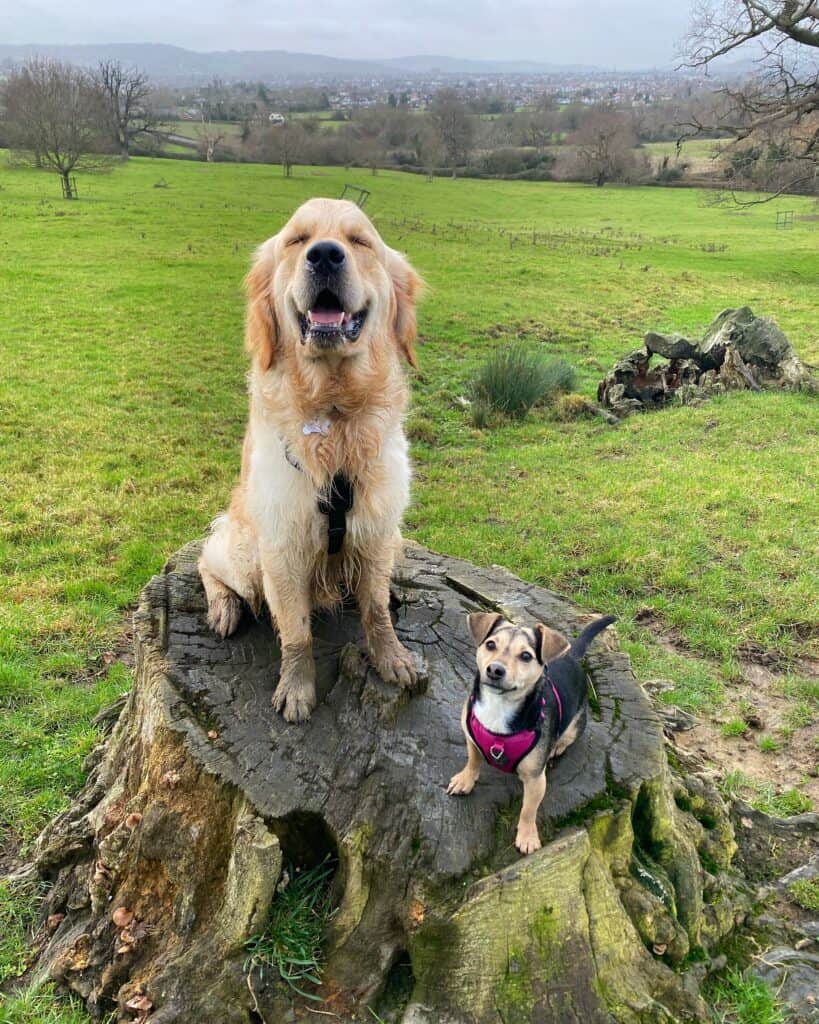So you have made the decision to welcome a dog into your life! Congratulations and your exciting journey starts now! However, how do you choose your first dog? See the tips below!

Puppy or Rescue?
When looking to buy your first dog, you will need to choose if you will adopt a puppy from a breeder, or rescue a dog from a rescue centre. Either option has its own pros and cons which should be assessed. If adopting a puppy, obviously the puppy phase is incredibly cute and we most days look back on our puppy days with Albus with fond memories.
However, to find a puppy that has been responsibly bred requires homework (health-checked parents etc) and there is usually a lot of competition to get to the top of waiting lists for the more popular breeds. The puppy phase, although lovely to look back on, it does have its challenges. Put simply you are raising a baby. There will be highs and lows in training and raising your puppy through its adolescence and beyond.
When rescuing a dog (most often not a puppy), there is a great sense of satisfaction by giving the dog a second chance in life, and giving them a new home to thrive in. However, you need to be aware that every rescue dog isn’t going to be the perfect dog straight away. Commonly these dogs have had a tough start in life and require a lot of training, and for them to build up their trust in you.
Both options are wonderful and will in most cases provide you with the dog you are after. The journeys to get there just may differ.
Specific Breed Instincts
There are a number of breeds to choose from, and whilst this isn’t the place to list every single trait of every single breed, the owner has to understand how the breed they are buying behaves instinctively, not just fall in low with how they look. For example, if buying a border collie, they have natural instinct to chase and if this isn’t satisfied with games (if you aren’t working the dog on a farm), it may chase something you’d rather it didn’t. Other examples are making sure to play fetch with Labradors and Golden Retrievers so they can retrieve, or playing scent games with bloodhounds.
Energy Level
When choosing a dog, it’s good to understand the energy that dog may have. Now, this is a large variable in every dog, but there are definitely breeds which are more energetic and those more lazy. Also, certain breeds have working lines and will have higher energy levels.
For example, border collies or spaniels can be quite energetic, with collies, in particular, being known to be able to go and go and go. Whereas, contrary to popular belief, greyhounds although the quickest dog in a sprint, are actually known as the couch potato of dogs. Very lazy and will have their one burst of energy on a walk and then sleep the rest of the day. Greyhounds are often recommended to older people that don’t want dogs with high energy.
Although it must be said for a lot of breeds, the more you exercise, the fitter the dog will get and the more energetic they will be. That isn’t saying if you want a lazy dog, don’t exercise it, but just a thought to be aware of. Exercise for a dog is essential so never neglect that!
Lifestyle
So what is your lifestyle like? Do you have a young family, are you out of the house most of the day? Do you have low energy levels? Do you love to go on regular long walks? Answering these questions will help in identifying the dog for you.
Labradors and Golden Retrievers love human contact, they thrive on it. They love being part of the family and are very good with kids. So if you have a young family and there will be someone home most of the time, they are a good choice. If the dog will go long periods without contact with someone, then they aren’t probably right for you as they are very prone to separation anxiety.
See my related post on classic behavioural traits of a Golden Retriever!
Also check out Are Golden Retrievers Good Family Dogs? 6 Key Reasons Why!
As mentioned if you have lower energy levels and want a companion, perhaps consider a greyhound or lurcher. If you however love long walks and going out and about, a Border Collie or pointer or Australian Shepherd are good choices.
There are also a lot of all-rounder dogs that are suited to many lifestyles such as Jack Russels, Spaniels, Retrievers etc. These aren’t laws of the land when choosing a dog, but it represents some of the research that needs to be done.
Size
Large, medium or small at adult size! Puppies don’t stay that size forever, so it’s important to consider this when choosing. I.e. not advisable that a Great Dane is welcomed into the home of an elderly person! Also if you have a member of your family that is learning to love dogs, getting a big dog first may not be the most ideal scenario. On the contrary, if you are a lover of large dogs, don’t get a chihuahua.
Lastly, when looking at a litter of puppies, even the smallest puppy may turn out to be the largest adult dog!

Ronnie on the left grew to be the same size adult as Albus (right)!
Home Environment
Another consideration is your home environment. How much free space do you have? Do you have outdoor space? Do you have a lot of stairs? Do you live in close proximity to neighbours such as in a flat?
Dogs like large breeds or high-energy breeds require space. Also for large breeds, you have to be mindful of their hips and a house with lots of steep stairs needs to be managed.
If you live in close proximity to lots of neighbours like in a block of flats, having more guard-minded dogs like German Shepherds or Dobermans needs to be thought through more carefully, as a lot of noise may set them off barking which will be unpleasant for the dog and the neighbours, as well as giving you anxiety. It isn’t a flat no, but training will be essential.
Cost
Higher costs are generally associated with larger breeds and also older dogs. As an example, larger breeds require more food, and older dogs (e.g from a rescue centre) will have higher insurance premiums.
In addition, certain breeds require more grooming which is an added expense if you don’t do it yourself. Breeds such as poodles or mixed breeds with a poodle.

